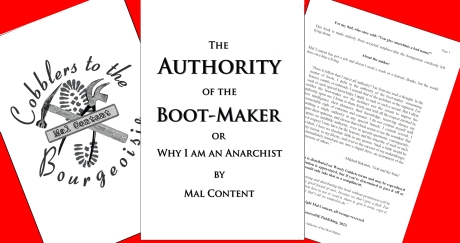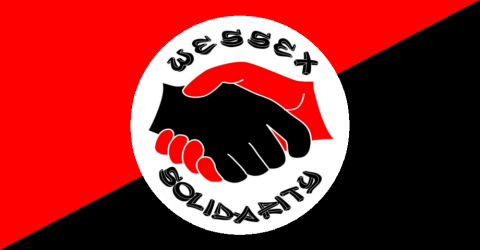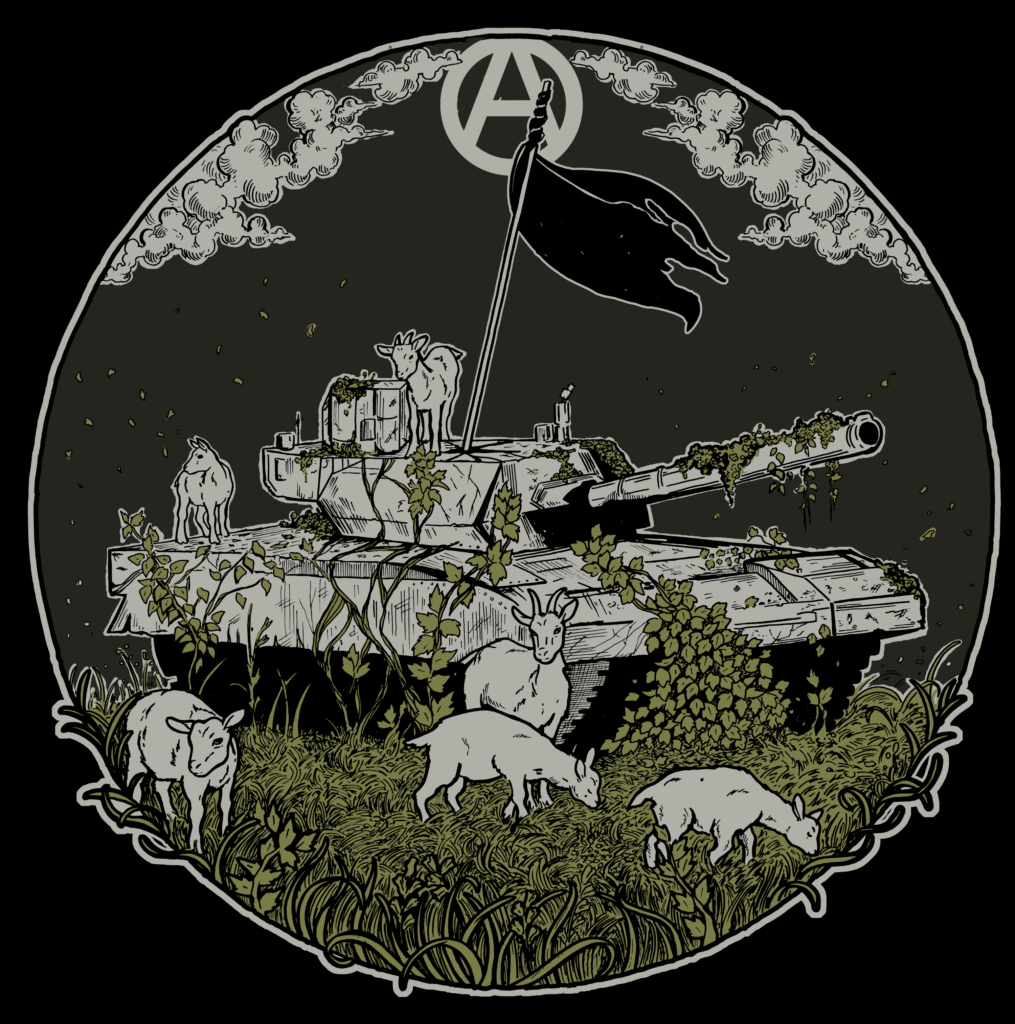The story so far: Madrid has been saved a second time by the Working Class, no thanks to the government which fled to Valencia. Durruti is dead, his column decimated, the remainder face militarisation and dispersal. Prime minister Largo Caballero has devoted his energies to re-establishing the power of the state in the republican zone, and Stalin’s grip tightens on it. The Russians have arrived, and so have thousands of foreign antifascists. The following lines from ‘The Authority of the Bootmaker’ by Mal Content.
The fall of Malaga to Italy on the 8th of February 1937 gave the dictator his excuse to unseat Caballero. Malaga suffered from the same government prejudice as Catalonia, agriculture on the coastal strip was mostly collectivised and the city had been held by Confederal militia, only three-quarters of whom were armed; they had sixteen artillery pieces in total. The government’s military representative was Communist fellow-traveller Colonel Villalba, whose incompetence on the Huesca front had inflicted significant losses on the Durruti Column. Weeks of fascist build-up in the surrounding countryside had been ignored. Mussolini’s Blackshirts, nine mechanised battalions worth, descended from the hills to the North and West in little turretless tanks and armoured cars. They were accompanied by thousands of African legionnaires and Carlist Requetés, supported by a hundred aircraft, three Spanish cruisers and the German battleship Admiral Graf Spee. The city had to be evacuated; some ten thousand prisoners were executed while four thousand refugees died on the hundred and fifty mile march to Almeria, simultaneously bombarded from land, sea and air. A nationalist officer wrote:
“During the first week, when no-one could enter Malaga, four thousand were shot. They were shot down in groups by machine-guns on the Playa del Palo. Later on, courts martial were set up. At dizzying speed, people were tried – if that is the right word – in groups of fifty to seventy. In this fashion, by the third month of Malaga’s liberation (sic) ten thousand people had perished.”
– Antonio Bahamonde y Sanchez de Castro: ‘Un Ano de Queipo: Memorias de un Nacionalista’
The reprisals continued for years, in August 1944 the death toll stood at twenty thousand as reported by the nationalist administration to the British consul. I could speculate that the liberal democracies’ indifference to the systematic extermination of non-combatants may have encouraged the Nazis to press ahead with their own genocide; it certainly did nothing to put them off.
The Communists claimed the defeat was due to treachery, and they may well have been right*. Villalba was arrested but swiftly released; the under-secretary of war, General Asensio, one of the few who had failed to join the party, was variously accused of incompetence and duplicity, and Caballero had defended him. He succumbed to the pressure, but his replacement was a left-wing socialist.
*Was Villalba a ‘fifth columnist’ who regretted getting stuck on the republican side? He was allowed to return to Spain after the war, and claim a Colonel’s pension; had he ever been of any use to the Republic he would undoubtedly have been shot. He seriously undermined the Aragon front from the start, when he prevailed on the anarchists to delay the assault on Zaragoza until it was too late. Did he sacrifice Malaga on Franco’s or Stalin’s orders? Or was he just an arsehole?
The Nationalists then sought to cut the road from Madrid to Valencia, which required skirting the south of the city and crossing the valley of the Jarama River. The action was intended to coincide with an attack on Guadalajara by the Italians but they weren’t ready so Franco went ahead anyway. Beginning on the 5th February the Army of Africa with a German armoured company surprised and overran Republican forces on the West bank. They defended their positions to the death, but by the 8th, the Western heights were in fascist hands. The river crossing on the 11th was led by Moroccan commandos who killed the sentries, immediately followed by cavalry that engaged the XIV International Brigade. Another column crossed the Arganda Bridge, which failed to collapse when its charges were detonated, but was halted by the Garibaldi Battalion of the XII I.B. German and Russian aircraft clashed overhead, the Russians retaining control.
The Eastern side was reinforced by the recently formed XV I.B. of British, Irish, Francophone and Balkan volunteers. The British Battalion went into action here for the first time. Things didn’t get off to an auspicious start; their commander Wilf McCartney was accidentally shot by the Brigade Commissar Peter Kerrigan (the Comintern’s British delegate) before they left their base at Madrigueras. McCartney was invalided out so Tom Wintringham took over. The first deployment of the XV was a cock-up; they were poorly equipped, had no maps and had not been told the enemy had already crossed the river, so they came under fire as soon as they began to descend the valley. The machine-gun company found it had been given the wrong ammunition. The truck carrying the replacement batch broke down, and when it arrived, the cartridges had to be belted by hand. The ridge of land that became known as ‘suicide hill’ was continuously swept with fascist machine gun fire, it was held for hours against terrific odds by one of the three infantry companies, led by I.R.A. veteran Kit Conway, who died there.
“Reaching the crest of the hills overlooking the valley and the river, the three companies of the Battalion met the full force of the Fascist advance. Up the slopes long lines of Moors and Foreign Legionnaires surged forward under cover of artillery and machine gun fire, threatening to sweep all before them. No one in his senses could have conceived that this line of riflemen could hold up that onslaught for more than a few minutes. And behind them? Nothing. A clear field down to Arganda, Morata and the Madrid road.
But men who had come hundreds of miles to fight, sustained by an understanding of the cause for which they are fighting, do not act in the way prescribed by the military textbooks. Rapidly deploying in open formation, the Battalion went into the attack against the advancing Moors. The Fascist troops faltered, then hastily dropped down to cover. Only the sheer audacity of this handful of men could have achieved this. Had the Fascist officers been aware of the true position on our side, they would have overwhelmed the Battalion by sheer superiority of arms and numbers.”
– George Leeson, antifascist: ‘Spain Today, February 1947.
The ridge was eventually abandoned, but as luck would have it, just as the fascists came over the top the machine-gunners managed to get re-supplied and mowed them all down. The following day’s chaotic infantry retreat left the machine-gun company exposed and most were captured. Forty infantrymen then charged the position, of whom six survived. On the third day fascist tanks pushed the line back to the road, it was ‘shit or bust’. Frank Ryan and Jock Cunningham gathered the survivors to counter attack, leading them in a chorus of the ‘Internationale’:
“Some were still straggling down the slopes from what had been up to an hour ago, the front line. And now, there was no line, nothing between the Madrid road and the Fascists but disorganised groups, of weary, war-wrecked men. After three days of terrific struggle, the superior numbers, the superior armament of the Fascists had routed them. All, as they came back, had similar stories to tell: of comrades dead, of conditions that were more than flesh and blood could stand, of weariness they found hard to resist.
I recognised the young Commissar of the Spanish Company. His hand bloody where a bullet had grazed the palm, he was fumbling nevertheless with his automatic, in turn threatening and pleading with his men. I got Manuel to calm him, and to tell him we would rally everyone in a moment. As I walked along the road to see how many men we had, I found myself deciding that we should go back up the line of the road to San Martín de la Vega, and take the Moors on their left flank. Groups were lying about on the roadside, hungrily eating oranges that had been thrown to them by a passing lorry. This was no time to sort them into units. I noted with satisfaction that some had brought down spare rifles. I found my eyes straying always to the hills we had vacated. I hitched a rifle to my shoulder.
They stumbled to their feet. No time for barrack-square drill. One line of four. ‘Fall in behind us.’ A few were still on the grass bank beside the road, adjusting helmets and rifles. ‘Hurry up!’ came the cry from the ranks. Up the road towards the Cook-House I saw Jock Cunningham assembling another crowd. We hurried up, joined forces. Together we two marched at the head. Whatever popular writers may say, neither your Briton nor your Irishman is an exuberant type. Demonstrativeness is not his dominating trait. The crowd behind us was marching silently. The thoughts in their minds could not be inspiring ones. I remembered a trick of the old days when we were holding banned demonstrations. I jerked my head back: Sing up, ye sons o’guns!“
– Frank Ryan: ‘The Book of the 15th Brigade’ 1938.
The one hundred and forty volunteers who marched back up the road to suicide hill did not all speak the same language, but everyone knew the tune; to compensate for their lack of numbers they engaged the enemy with a high rate of fire. Evidently the Fascists had not expected to see the routed Brigaders again, and presuming them to be reinforcements, fell back. The breach in the front was filled overnight and did not move for two years. To their right the Dimitrov and Thälmann Battalions held off the frontal assault on their own positions.
There were several costly counter attacks that failed to shift the Nationalist lines significantly, Lister’s fifth regiment advancing across open ground in broad daylight took fifty percent casualties, the North American and Irish Abraham Lincoln Battalion fared no better under similar conditions, their first engagement immortalised in the last words of poet Charlie Donnelly: “Even the olives are bleeding”. Jarama seriously undermined the morale of the International Brigades; they were used as expendable shock troops by inexperienced Communist generals who wanted propaganda victories. A month of bloodshed left both sides entrenched in a stalemate reminiscent of the Western front.
It’s fair to say the republic suffered from a lack of military experience, the Spanish metropolitan army had been little more than a dining club, only those officers who had been to Africa had ever seen combat, or even been on manouvres. Their tactics were from old French textbooks* or gleaned from the First World War, to which they had been spectators. The Russian officers were mostly young and equally untested, as the Red Army was being purged. Their authoritarian culture stifled initiative and they were under strict instructions not to risk capture. The best of the I.B.s were those like the Irish, with recent battle experience, or veterans of the Great War.
*To the extent that Franco believed they were receiving training from the French armed forces.
Flushed with the carnage at Malaga, Mussolini planned a showcase for fascist Italy’s martial prowess; sending his Blackshirts to cut off Madrid to the North East at Guadalajara. Instead they took such a shafting as to acquire a reputation for military incompetence and retreat that outlived his regime. Instrumental in their downfall was the Garibaldi battalion of the 12th I.B., exiled Italian antifascists with a score to settle. On the 8th of March the motorised infantry swarmed into the pass in their fleet of little tankettes. With about five to one numerical superiority they initially made rapid progress but were slowed by bad weather and boggy ground. The vehicles began to get stuck and their air support was grounded whilst the Republican air force benefitted from the concrete runway at Albacete. The 14th division led by the Madrid bricklayer Cipriano Mera counterattacked. The rout at Guadalajara guaranteed Mussolini’s continued support for Franco, to save face, it also led to the latter rescinding Blackshirt military autonomy and caused observers to re-think their strategy regarding mechanised infantry. At the same time, in their capacity as members of the non-intervention committee, Italian and German navies blockaded the Mediterranean coast; the only supply route left to the Republic was across the Pyrenees, and the French were all over that.
February 6, 2017
Categories: Anarchist, France, Germany, Poland, Spain, U.S.A. . Tags: Anti fascist, fascist, Freedom, International, IWW, workers . Author: wessexsolidarity . Comments: 1 Comment
















